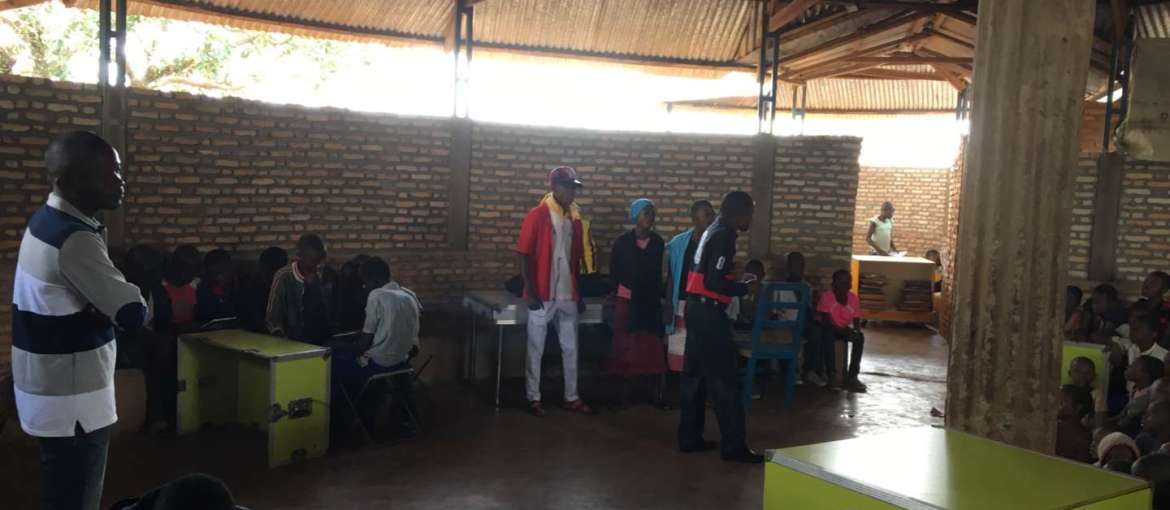Welcome to LWB International's website!
Follow us
Welcome to LWB International's website!

In February 2014, Libraries Without Borders (LWB) launched two Ideas Boxes in the Kavumu and Musasa refugee camps in Burundi in an effort to address the pressing needs of Congolese refugees fleeing the Democratic Republic of the Congo. Within five months of setting up and operating these programs, LWB was able to expand its services to the Bwagiriza refugee camp. Today — three years later — we have successfully scaled the Ideas Box program to the broader African Great Lakes region through projects in Burundi, the Democratic Republic of Congo, Rwanda and Tanzania.
In Kavumu, where the story of the Ideas Box began, the mobile multimedia center and library offered a welcoming and safe space where refugees could organize and participate in activities that reflected their needs and interests. The Ideas Box also provided refugees with access to customized tools and resources such as Coursera for Refugees, an educational course crafted to give refugees the skills they need to transition into new host countries.
This Coursera project was supported by the Ecole Polytechnique de Lausanne , the ESSEC and the Université de Genève. By offering Coursera and other educational resources, the Ideas Box addressed local needs and promoted lifelong learning, personal growth and creative expression. On-the-ground, we worked closely with our partner, the International Rescue Committee (IRC), which helped us oversee daily operations at the Ideas Box.
“ Prior to the arrival of the Ideas Box, young adults in Kavamu had little to do in the camp.”
With the arrival of this program, Libraries Without Borders provided 30 Congolese refugees — many of whom had fled their country before graduating from high school, while others had been forced to dropout of college — with the opportunity to continue learning and gain certification, which would enable them to pursue higher education upon leaving Kavamu.
At the Ideas Box, Eric, Salvador, Jean-Pierre and a number of other students decided to create a study group to help each other pick classes and learn the course material together in a safe space.“We were very motivated. We really wanted to achieve this goal, to be part of an incredible project !”
We are proud to report that as of November 2017, 11 of the 30 students have graduated from the program — and have the certificate to prove it!
By offering tools & resources that transformed traditional educational methods and skills-based training, Libraries Without Borders created a community space that was shaped by the refugees themselves. This had a strong psycho-social impact on the students, both as individuals and as a community, by strengthening their resilience and giving them a renewed sense of hope.
The program undoubtedly changed the lives of many people. By bringing these resources into refugee camps, Libraries Without Borders created a lifeline that enabled refugees to pursue education and prepare for the future.
Libraries Without Borders will continue to build upon what we have learned from this and our other international projects to scale up opportunities for many more vulnerable people — ensuring they too can reap the benefits of a high quality education!
We thank the Fondation Pierre Bellon and Google for providing their generous support, which allowed us to make these programs a reality.